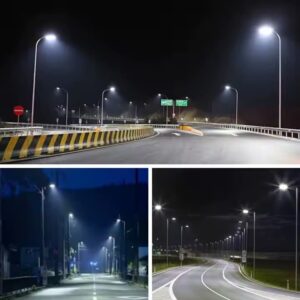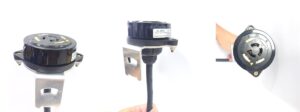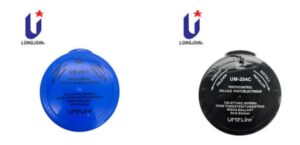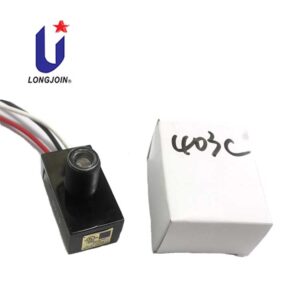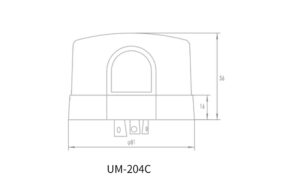Long-join’s Measures on Intellectual Property Protection and Strategies to Prevent Competitors’ Copying
Introduction
Global competition is on the rise and it is not enough to simply innovate. You must also protect what you build. Long-join is one of the top photocell sensor and lighting component makers. They know that intellectual property rights are key to lasting innovation. But while many factories acknowledge the need for IPR, few know how to enforce it effectively.
How does Long-join work to protect its products? It stops copying and unauthorized use even in a competitive market.
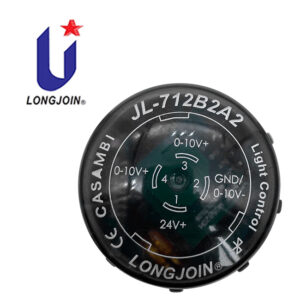
Why Is Intellectual Property Protection Important for Lighting Manufacturers?
In a busy market, products like photocell lighting sensors and Zhaga sockets are in high demand. This means that design theft happens more often than you think.
Factories that invest in photoelectric sensor research and development face a big risk. Copycat manufacturers can undercut them. For example, a supplier may send a 3D model to a potential customer. The file could then fall into the hands of competitors.
Here’s why IP protection is essential in this space:
Reason | Impact |
Prevent product imitation | Maintains original value, prevents devaluation |
Secure competitive edge | Keeps innovative tech exclusive |
Protect brand trust and integrity | Builds customer loyalty and long-term cooperation |
Increase company valuation | Valuable IP adds weight to investment and partnership talks |
Explore Long-join’s secure photocell sensor product line for street light control and other applications.
How Does Long-join Prevent Unauthorized Use of 3D Product Files?
Have you ever requested a 3D file from a supplier only to be met with silence—or worse, manipulation? Many factories today withhold files or delay delivery until large orders are confirmed. This can frustrate real customers while still failing to stop counterfeiters.
Long-join takes a different approach.
Rather than outright refusal or coercion, Long-join uses a verification-first strategy:
- Verify legitimate customer need.
- Provide watermarked 3D files with embedded anti-counterfeit logos.
- Include scrolling statements in the file viewer to deter misuse.
- Clearly label the file with IP disclaimers and terms of use.
Example Disclaimer:

This transparency encourages healthy cooperation while still safeguarding proprietary designs.
What Internal Strategies Help Long-join Protect Confidential Product Details?
Have you ever requested a 3D file from a supplier only to be met with silence—or worse, manipulation? Many factories today withhold files or delay delivery until large orders are confirmed. This can frustrate real customers while still failing to stop counterfeiters.
It starts from within.
To avoid information leaks about critical components like photo control sensors or remote control lighting systems, Long-join has a multilayer confidentiality plan:
Measure | Purpose |
Restricted access to core design files | Only authorized R&D teams access sensitive data |
Non-disclosure agreements (NDAs) | Mandatory for external partners and internal teams |
Departmental segmentation | Limits the visibility of full product blueprints |
Controlled sample release | Samples embedded with tracking markers and IDs |
All employees handling light photocell or socket-based files (like NEMA 7-pin receptacle drawings) undergo regular training on identifying risks and preventing leaks.
How Does Long-join Raise IPR Awareness Among Its Employees?
You can’t protect what you don’t understand. Long-join’s team is its first line of defense.
Many companies focus on external threats but forget one important thing: IP protection starts with people.
From engineers to logistics managers, anyone can accidentally leak a sensitive design or overlook a suspicious request. That’s why Long-join invests time and energy into making sure every team member understands the importance of IP—and knows how to handle it properly.
Here’s how the company builds awareness:
- Quarterly workshops on intellectual property.
- Real-world case studies of patent theft.
- Guidelines on how to handle customer data securely.
- Internal newsletters on recent legal wins/losses in the industry.
This empowers teams—from product designers to the customer support desk—to handle photo switch sensor information with caution and intent.
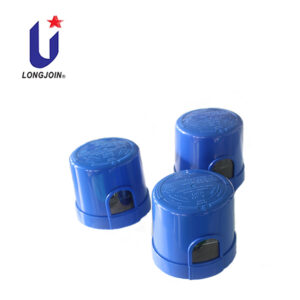
What Makes Long-join’s IP Strategy Stand Out from Others?
What sets Long-join apart isn’t just policy—it’s consistency and trust.
It’s one thing to talk about protecting IP. It’s another to actually do it—and do it well.
Long-join has a strong reputation not just because of its product quality, but because of the trust it builds through its protection practices. Unlike many factories that either overpromise or stay vague, Long-join offers real tools, training, and transparency.
Here’s a quick comparison:
Feature | Long-join |
File access policy | Transparent, secure, with IP notice |
Anti-counterfeit measures | Embedded in digital files |
Team training frequency | Quarterly + situation-based alerts |
Tech safeguarding approach | Multi-tiered access + real-time monitoring |
Respect for ethical procurement | High – customer-first, trust-building approach |
With the rise of dusk to dawn photocell sensor solutions, reliability and IP safety are as crucial as energy efficiency.
Check out Long-join’s trusted Zhaga socket collection designed for compatibility and secure data transfer.
What Are the Consequences of Ignoring Intellectual Property Protection?
When factories overlook IPR, the cost can be devastating—both to the brand and the broader industry. Some companies only realize this too late, when their designs show up on the market under a different name and lower price.
Whether it’s a photo sensor for smart street lighting or a light sensor photocell switch embedded in a modular system, once your innovation is out there, it can either build your brand—or be stolen and sold under someone else’s.
Here’s what can go wrong:
- Revenue loss due to imitation products.
- Erosion of brand trust as low-quality copies enter the market.
- Legal liabilities if proper documentation is lacking.
- Unfair competition that devalues innovation.
What Can Buyers Do to Avoid Supporting Intellectual Property Violations?
Buyers aren’t just customers—they’re gatekeepers. Choosing a responsible supplier helps protect the entire industry. If you’re sourcing items like photocell LED street lights or remote control light systems, working with ethical manufacturers ensures you’re not indirectly supporting piracy.
When selecting a supplier for photocell street lighting components or smart remote control switches, here’s what buyers should ask:
Question to Ask Suppliers | Why It Matters |
Do you watermark your 3D files? | Prevents third-party misuse |
Is there an anti-copying clause? | Signals their commitment to IP safety |
How do you handle data sharing? | Ensures ethical file handling |
What’s your record with IP enforcement? | Look for legal wins, or detailed preventative steps |
Buyers who choose suppliers like Long-join, known for photocell control innovation and transparency, can feel confident in long-term cooperation.
Conclusion
Long-join isn’t just making cutting-edge photocell products — it’s building trust by protecting its ideas, its customers, and the future of innovation. Through verified file sharing, embedded anti-copying systems, internal confidentiality policies, and employee awareness training, Long-join stands as a model of ethical manufacturing and IP defense in the smart lighting space.
When selecting suppliers, trust the ones that protect what they create. Long-join is leading by example.
External References
● https://en.wikipedia.org/wiki/3D_modeling
● https://stfrancislaw.com/blog/intellectual-property-rights/
● https://www.wipo.int/


